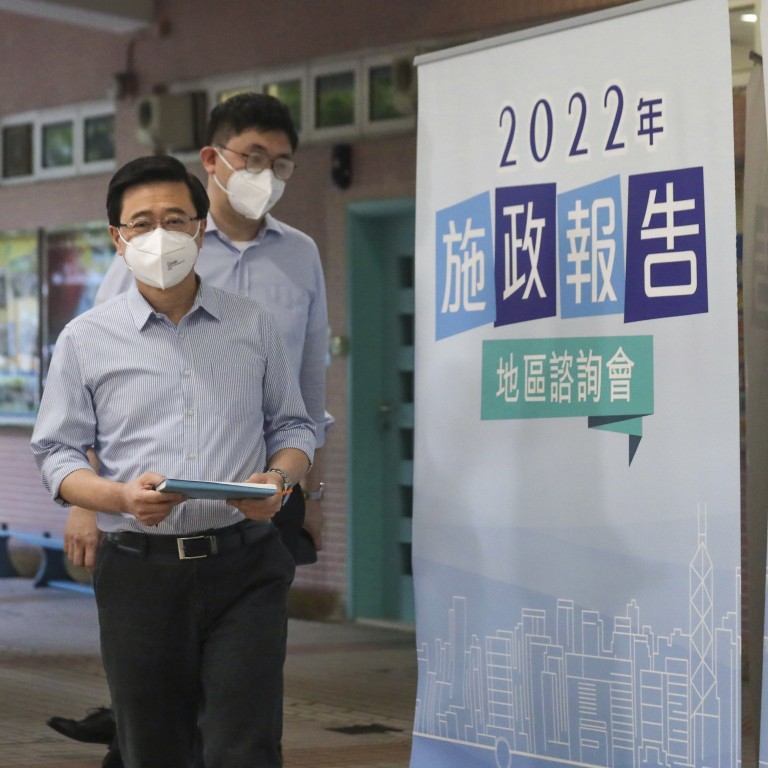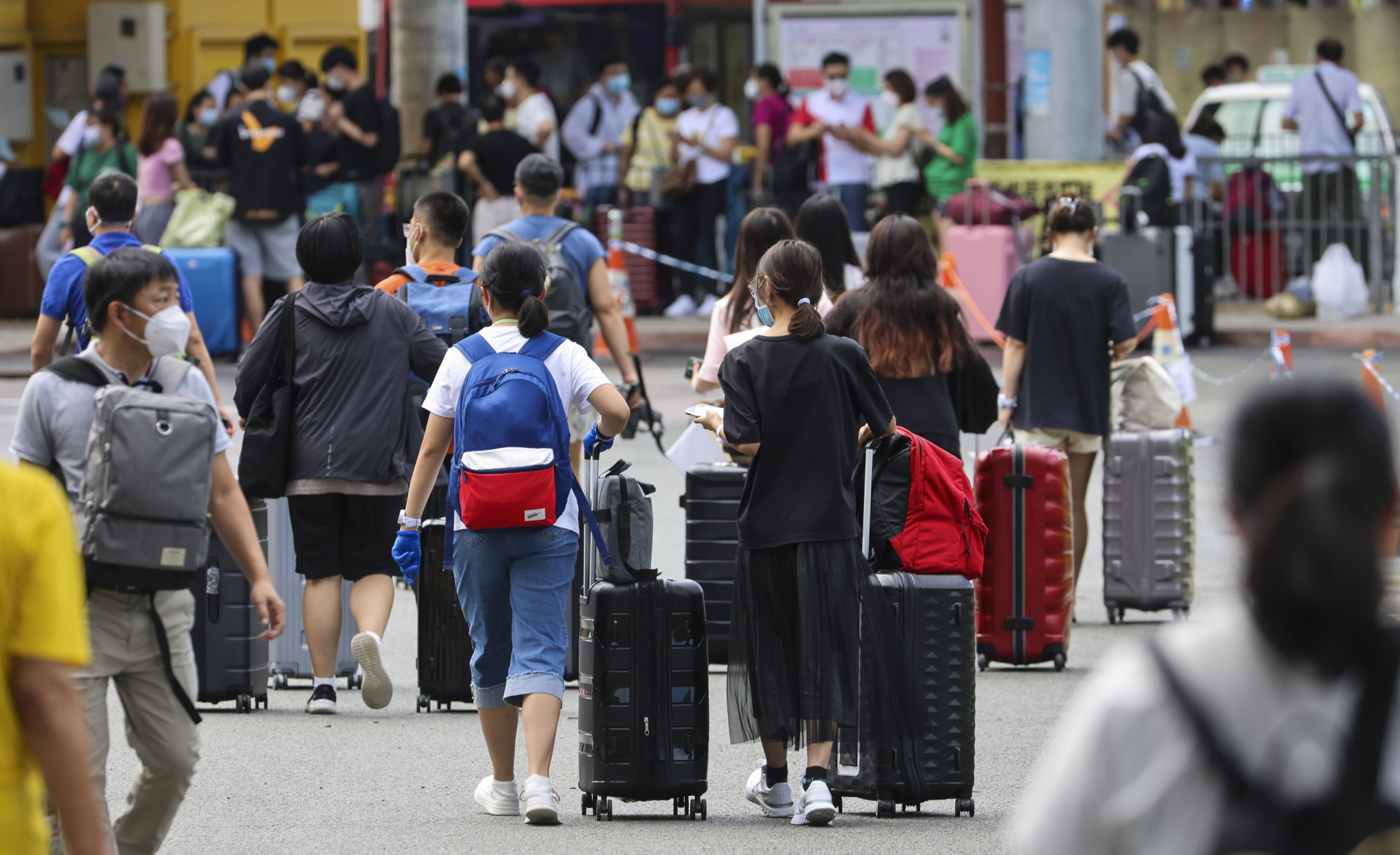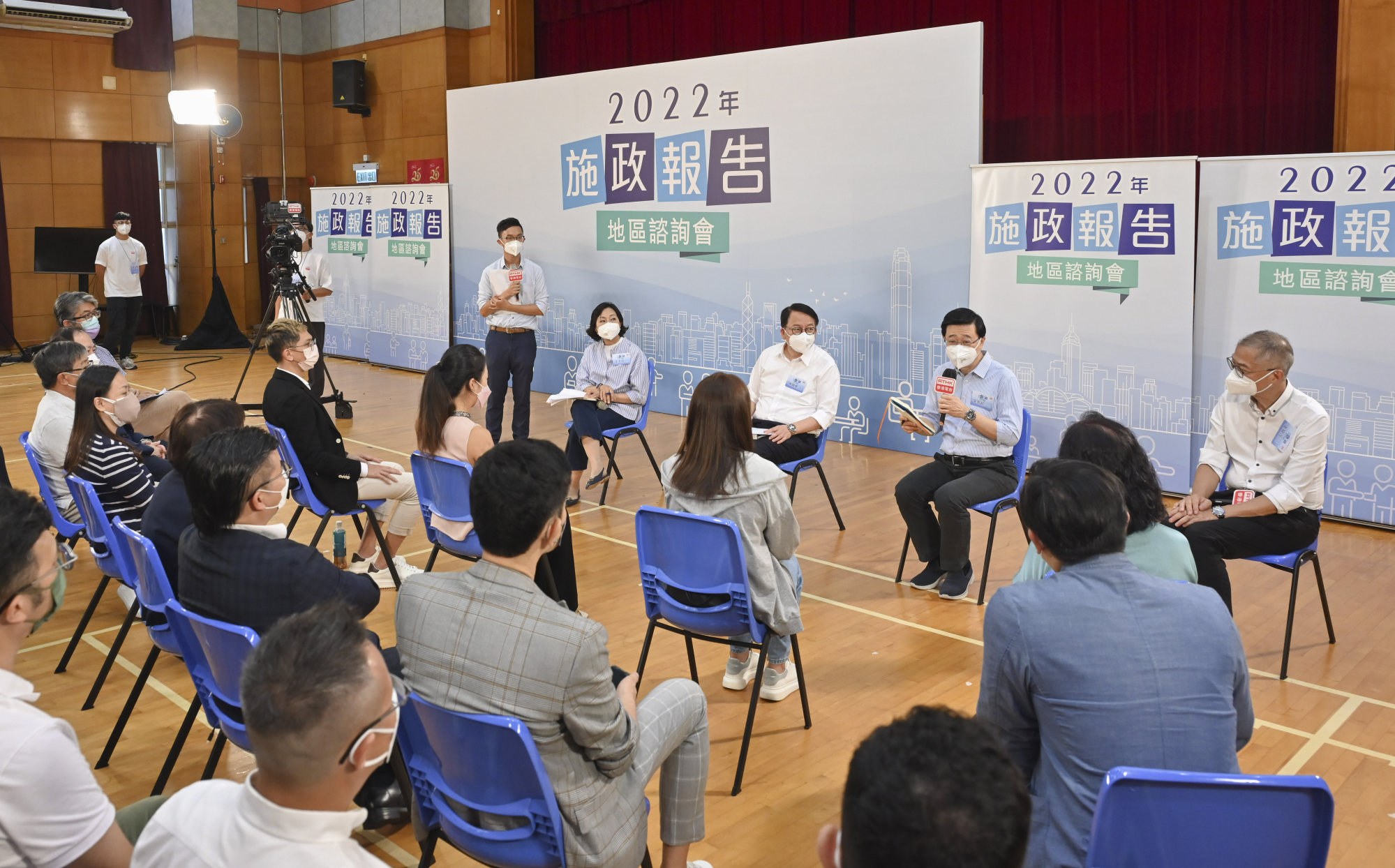
Coronavirus: Hong Kong leader John Lee to pursue reopening of border with mainland China on Guangdong trip
- Hong Kong and mainland on same page on sorting out measures to restore quarantine-free travel, he says
- Chief executive says he will lay down ‘precise’ strategies and target high-risk activities in combating current wave of Covid-19 cases in Hong Kong
He said Hong Kong and the mainland were on the same page on sorting out viable measures to restore quarantine-free travel.
Hong Kong, mainland China working together to reopen border: John Lee
“One of my main directions is to provide Hongkongers and people who go to the mainland via Hong Kong with convenience to travel, without increasing the epidemic risk to the mainland,” Lee said, adding the chance of reopening the border would be higher if the city could control infection numbers.
But Lee did not elaborate on the border reopening plan and timetable, saying it was inappropriate to disclose meeting details at the moment and the government would make further announcements when both sides had reached a consensus.
“It is better to announce the details when we have reached a certain stage of agreement, otherwise the information will be confusing,” Lee said.
Health officials on Saturday reported 8,457 new infections, including 232 imported cases, and four more deaths. That pushed the overall number of cases to 1,504,264 with 9,441 Covid-related fatalities.
At least eight senior government officials have tested positive for Covid-19 this month, including commerce chief Algernon Yau Ying-wah and Deputy Chief Secretary Warner Cheuk Wing-hing.

Lee said the rising number of infections among his governing team reflected the serious risk of community infections.
The chief executive said he would lay down “precise” strategies and target high-risk activities in combating the current wave of Covid-19 cases, adding that he hoped other social-distancing measures would not need to be tightened under such a principle.
Lee also warned that society should remain vigilant about the public healthcare system’s capacity, noting that an average of about 300 Covid-19 patients were admitted to hospital every day, affecting 20 to 30 per cent of non-emergency services and resulting in the postponement of some operations.
Hong Kong gears up for Covid fight as health chief warns tighter curbs possible
A day after health chief Lo Chung-mau had urged the city’s 13 private hospitals to contribute more to the Covid-19 fight after earlier pledging beds for non-Covid patients from the public sector, Lee also weighed in.
He said private hospitals had a role to play in fighting the epidemic because they used government resources including land, talent and materials.
“If the Omicron variant attacks us at the speed of a tsunami and our public hospitals are referring [patients] to private hospitals at the speed of a turtle, society will not accept this, I also will not accept this,” Lee warned, urging the private sector to be more active in admitting patients.
A source earlier told the Post that Lee would make his first official visit to neighbouring Guangzhou and Shenzhen on Wednesday and Thursday.

Political heavyweight Tam Yiu-chung, Hong Kong’s sole delegate to the country’s top legislative body, and commentator Lau Siu-kai, from the semi-official Chinese Association of Hong Kong and Macau Studies, both said the infections among senior officials were unlikely to affect Lee’s mainland trip given he had fulfilled all the Covid-19 testing requirements.
“Mainland officials will definitely meet Lee, but the problem is there may not be fruitful outcomes,” Lau said, adding that quarantine-free travel to the mainland was difficult to achieve under the country’s zero-Covid policy.
Tam said any discussion on quarantine-free travel was ill-timed now but the government could try to achieve other traveller-friendly border control measures. That could include a “reverse isolation” proposal under which Hongkongers could quarantine in the city before they crossed the border and increasing quotas for businesspeople to visit the mainland.
Hong Kong is easing quarantine rules for arrivals: here’s what you need to know
“We need to gain the trust of the mainland authorities in our epidemic-control measures,” Tam said. “We know that asking for a full reopening is impractical at the moment. We also do not wish to bring infection risks to the mainland for our own convenience.”
Lee was speaking after holding his second public consultation to gather feedback as he prepares to deliver his maiden policy address on October 19.
The session at Hong Kong Southern District Government Primary School in Ap Lei Chau was attended by 110 people, including university students and representatives of district organisations.
Lee noted it was halfway through the public consultation period, and he had attended 16 meetings joined by more than 1,200 participants since July 25.
During Saturday’s meeting, participants voiced their concerns about various issues including education, the exodus of local talent, sports, the economy, youth and housing. A resident, for instance, urged the government to build temporary sports facilities as some existing ones had been turned into coronavirus vaccination centres.
Meanwhile, the Food and Environmental Hygiene Department said a new rule taking effect on Sunday requiring groups of more than eight diners to take a rapid antigen test beforehand did not apply if they were seated at more than one table.
The requirement only referred to situations where customers exceeded the number allowed to be seated at one table and were dining together “with a common purpose”.


